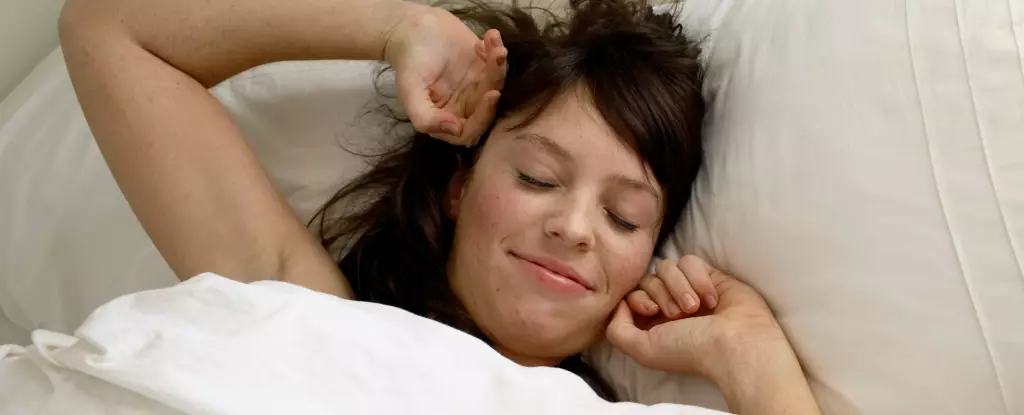The relationship between sleep and cognitive function has long intrigued scientists and philosophers alike. Renowned author John Steinbeck articulated this connection eloquently, hinting at the transformative power of sleep to clarify complex dilemmas. In recent years, a surge of research from institutions worldwide has begun to unravel the mechanisms by which sleep not only aids decision-making but also enhances creativity and problem-solving. This article explores various findings that highlight how sleep acts as a catalyst for cognitive breakthroughs.
A study conducted by researchers at Duke University in 2024 sheds light on the cognitive benefits of sleep. Participants engaged in a simulated garage-sale game where they had to select boxes filled with various items. Interestingly, when asked to make a quick decision, participants relied heavily on their initial impressions, often neglecting vital information contained in later items. However, when allowed to sleep before making their final choice, participants demonstrated improved judgment and made more informed decisions. This suggests that sleep serves to process and organize information in a manner that enables individuals to make more rational choices rather than being influenced by first impressions.
This phenomenon can be attributed to the brain’s ability to consolidate memories and experiences during sleep. While sleeping, the brain works like a filing cabinet, sorting through various pieces of information and restructuring them to facilitate better understanding. As a result, when we awaken, we are better equipped to analyze situations and make sound decisions that consider more than just initial perception.
The beneficial effects of sleep go beyond mere decision-making. Findings from a 2019 study reveal that external cues presented while an individual is asleep can enhance problem-solving abilities. In this study, subjects working on puzzles were exposed to distinct sounds related to the unsolved problems while they slept. Later, upon returning to the lab, these participants exhibited a higher success rate in solving puzzles that were connected to the sounds they heard during sleep. This intriguing discovery indicates that the sleeping brain remains active, processing information and potentially working on solutions to previously unsolvable tasks.
The implications of this study are profound. It suggests that simply introducing stimuli related to a problem before sleep can prepare the brain to tackle challenges subconsciously. This finding encourages the notion that harnessing the power of sleep could offer innovative strategies for enhancing learning and problem-solving across various fields.
Another compelling aspect of sleep’s impact on cognition comes from a research project published in 2023, where participants learned to establish connections between unrelated items. Through a series of experiments, it became evident that after a night’s sleep, participants were far better at recognizing indirect associations among the items compared to when they were awake. This suggests that sleep can unveil underlying patterns and relationships that might not be evident during conscious thought.
These findings advocate the idea that sleep facilitates cognitive flexibility, an essential quality for creative problem-solving. The brain’s ability to connect disparate dots may enhance our capacity to develop innovative solutions. This challenges long-held beliefs about the need to remain actively engaged in a problem to solve it, pointing instead to the value of stepping away and allowing the subconscious to work on tough challenges.
The connection between sleep and creativity is further exemplified in historical anecdotes about innovators like Thomas Edison, who famously utilized naps to refresh his thinking. Recent studies have investigated whether the state of hypnagogia—the transitional phase between wakefulness and sleep—affects creative problem-solving. Research indicates that individuals who experience hypnagogia often report vivid imagery related to tasks performed before sleep.
In one study, participants tasked with brainstorming unique uses for a tree experienced a boost in creative thinking when their hypnagogic state included tree-related imagery. Such findings validate the anecdotal evidence that Edison’s methods might indeed have scientific grounding. The ability to tap into dream-like states and allow the mind to wander may prove crucial for creative breakthroughs.
In closing, the intricate relationship between sleep and enhanced cognitive function is supported by a burgeoning body of research. From improved decision-making to unlocking the potential for breakthroughs in creativity, the ability of the brain to work through problems during sleep is remarkable. As society becomes increasingly aware of the importance of sleep health, these studies highlight the necessity of treating sleep not just as a period of rest but as a vital component for maximizing our cognitive capabilities.
Harnessing the power of adequate sleep could serve as a game-changer in fields ranging from education to innovation, challenging us to reconsider how we approach problem-solving in our daily lives. As more research emerges on this fascinating subject, it is evident that the age-old wisdom of sleeping on a problem holds substantial merit in the realm of modern science.

